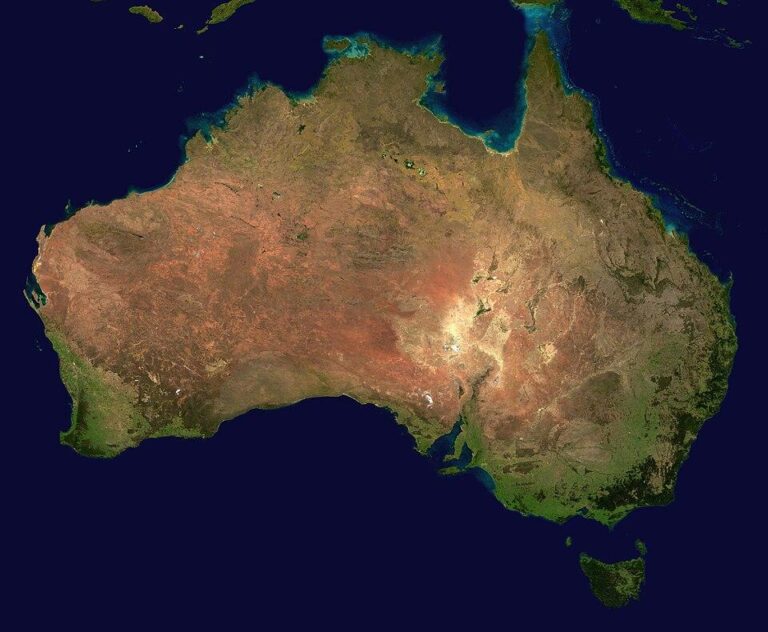Australia’s Foreign Minister has issued a stark warning over the escalating violence in the Israeli-Palestinian conflict, cautioning that there is a “risk there will be no Palestine left to recognise.” Speaking amid intensifying hostilities and international concern, the minister emphasized the urgent need for restraint and renewed diplomatic efforts to prevent further devastation in the region. This statement comes as global leaders grapple with the humanitarian and geopolitical ramifications of the ongoing crisis.
Australia’s Foreign Minister Voices Grave Concerns Over Palestine’s Future
Australia’s Foreign Minister has raised urgent alarms regarding the escalating tensions in the Middle East, warning of a “real risk there will be no Palestine left to recognise.” His remarks underscore growing international concerns about the humanitarian and political implications of recent developments. The minister emphasized the necessity for renewed diplomatic efforts to prevent further deterioration, calling on all parties involved to seek a sustainable and peaceful resolution that upholds the rights and dignity of the Palestinian people.
The official’s statement highlighted several critical issues currently threatening Palestine’s future:
- Expansion of settlements impacting territorial integrity
- Increasing displacement and humanitarian crisis
- Stagnation of peace negotiations
- Urgent international intervention needed to de-escalate violence
| Key Issue | Potential Impact |
|---|---|
| Settlement Expansion | Reduction of viable Palestinian territory |
| Displacement | Increased refugee population |
| Peace Talks | Reduced chances of lasting agreement |
| International Pressure | Critical for conflict de-escalation |
Analyzing the Implications of Potential Disappearance for Regional Stability
The potential disappearance of Palestine carries profound consequences that ripple across the Middle Eastern geopolitical landscape. Such an outcome risks destabilizing an already volatile region by undermining existing frameworks aimed at managing conflict and ensuring peace. The vacuum left could embolden extremist factions, intensify border disputes, and fracture diplomatic relations amongst neighboring states. The fragile balance sustained by international interventions and peace negotiations risks complete collapse, potentially escalating violence beyond current hotspots and drawing in global powers with vested interests.
Regional alliances and economic cooperation stand to suffer significantly, impacting trade, security, and humanitarian efforts. Some of the key implications include:
- Heightened security challenges: Increased militancy and cross-border incursions could ignite broader conflicts.
- Displacement crises: Massive population movements would strain resources in nearby countries, exacerbating refugee problems.
- Diplomatic fragmentation: Polarization within international bodies like the UN could deepen, hindering consensus-driven resolutions.
| Impact Area | Potential Consequence | Regional Stakeholders |
|---|---|---|
| Security | Escalation of militant activities | Israel, Jordan, Egypt |
| Humanitarian | Surge in refugee displacement | Lebanon, Syria, Turkey |
| Diplomacy | Breakdown in peace negotiations | UN, USA, EU |
Calls for Immediate International Action to Protect Palestinian Rights
Global leaders and human rights organizations have intensified their appeals for urgent measures to safeguard the rights and future of the Palestinian people. Amid escalating tensions and violence in the region, Australia’s Foreign Minister has issued a stark warning, emphasizing the devastating consequences of inaction. The minister underscored the critical need for international diplomacy to halt the erosion of Palestinian identity and statehood, describing the situation as “a real risk there will be no Palestine left to recognise.” This call has resonated across several international platforms, urging stakeholders to prioritize humanitarian concerns and uphold international law.
Key demands from the international community include:
- Immediate cessation of all hostilities affecting civilian populations
- Access to humanitarian aid and medical supplies in Palestinian territories
- Resumption of meaningful peace negotiations under UN supervision
- Accountability for alleged human rights violations through independent investigations
| Priority Area | Proposed Action | Expected Outcome |
|---|---|---|
| Diplomatic Engagement | Revive peace talks | Long-term regional stability |
| Humanitarian Access | Unhindered aid delivery | Alleviation of civilian suffering |
| Legal Accountability | Investigate war crimes | Justice and deterrence |
Future Outlook
As tensions continue to escalate in the ongoing Israeli-Palestinian conflict, Australia’s Foreign Minister’s stark warning underscores the urgent need for renewed international efforts to preserve the prospect of a viable Palestinian state. With the future of Palestine hanging in the balance, global attention remains focused on diplomatic solutions that might prevent further erosion of the two-state framework. The coming weeks will be critical as world leaders grapple with the complex realities on the ground and the imperative to safeguard lasting peace in the region.




